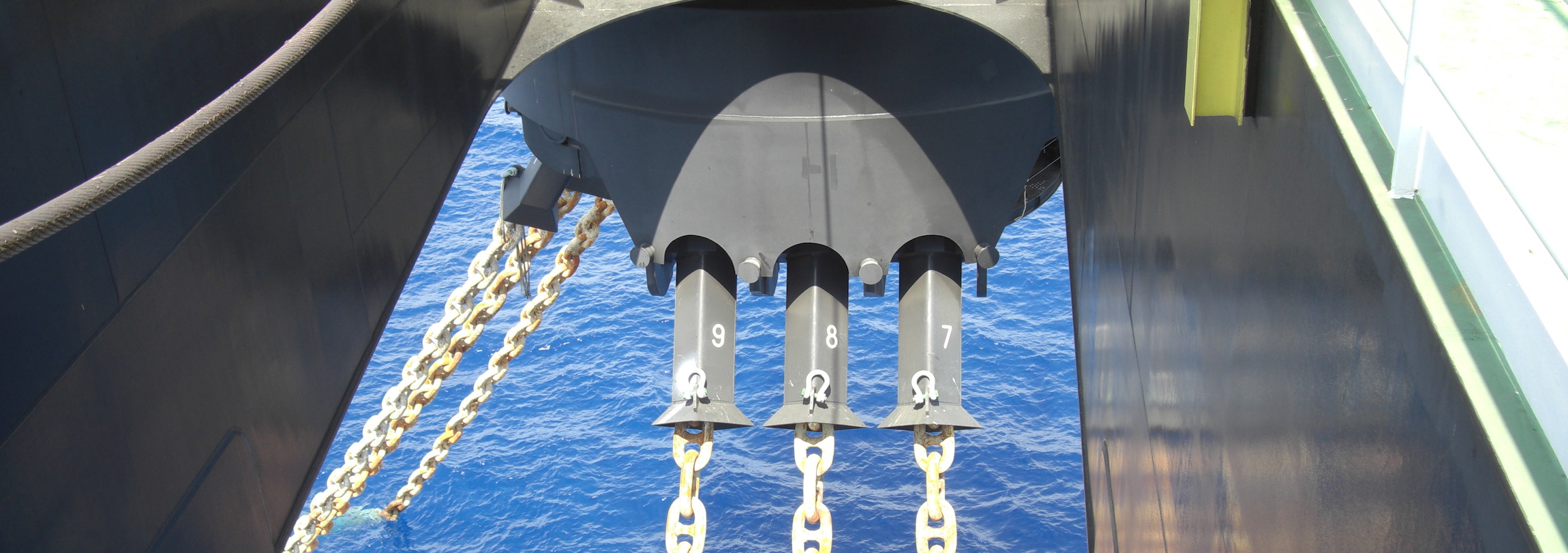Status: Completed (additional scope of work being investigated)
The objectives of the Chain FEARS JIP were:
- To derive a proven methodology to assess the remaining strength and fatigue life of chain links damaged by wear and/or corrosion
- To issue guidance for performing reliable Finite Element Analysis (FEA) of damaged chain links to assess remaining strength and fatigue endurance
- To provide more rational guidance for discard criteria that can be used by operators for replacing mooring lines or mooring line components.
A total of 14 companies participated in the Chain FEARS JIP. The final wrap-up on the work conducted was presented at the October 2015 FPSO Forum in Houston, with the final reports, incorporating member feedback, issued in late 2015. These reports covered two Work Packages:
Work Package 1: Residual Strength
The first Work Package of the Chain FEARS (Finite Element Analysis of Residual Strength) JIP aimed to develop guidance for the determination of a rational strength discard criteria for mooring chains subject to severe pitting corrosion which, based on current code requirements, would otherwise require immediate removal and replacement. A number of interesting findings in regard to the basis for the current Class Rules on chain MBL and on the inconsistency in the specification of proof loading were uncovered which, while not part of the original scope of the JIP, required investigation prior to concluding the Work Package and if developed further would afford economic benefit to the design of offshore mooring chain systems.
Work Package 2: Residual fatigue Life
The second Work Package of the Chain FEARS JIP aimed to develop guidance for the determination of a rational fatigue discard criteria for mooring chains subject to severe pitting corrosion.
A number of interesting findings were made in regard to the representativeness of the linear elastic FEA fatigue assessment method typically employed within industry up to this point, and a higher fidelity method of assessment was developed that correlated well with fatigue test data of as-new links. The investigations considered a number of influencing factors on fatigue life, and the developed high fidelity methodology accounts for a number of material, manufacturing and operational parameters that are not accounted for in the current code formulation. The method is correlated to the extent considered necessary for assessment of residual fatigue and, subject to validation against fatigue tests on degraded chain, the method can be used to develop rational discard criteria based on the nature and extent of chain degradation.
The final reports:
- Numerical Model Correlation of Degraded Link Break Tests
- Chain Strength Parametric Studies
- As-New Chain Strength Capacity Review
- MBL Strength Formulation for Stud-link Mooring Chain
- Comparison of Collated Fatigue Test Data with Code Fatigue Formulations
- A-New Chain Fatigue Life Review
Follow on work scope:
AMOG are now seeking expressions of interest in funding to continue the Chain FEARS JIP with a third work package. Designed to derive the possible economic benefits from the work conducted to date, the natural proposed extension of the JIP would involve:
- Establishing a revised Class Rules MBL and proof load specification
- Fatigue testing on degraded chains against which the JIP developed method can be further correlated
- Development of a simple residual fatigue life discard criteria
- Development of revised 'as-new' chain design curves with adjustment factors to account for chain type, material, manufacturing and operational parameters and for degradation levels
- Establishing a revised Class Rules fatigue design curves
Further Information
If you would like a presentation on Chain FEARS, including an overview of the Chain FEARS JIP, what was achieved, and what we are hoping to achieve as follow-up work, please contact us using this website, or you may speak with our Principal Engineer;
Simon Dimopoulos
P: +61 3 9542 3700

